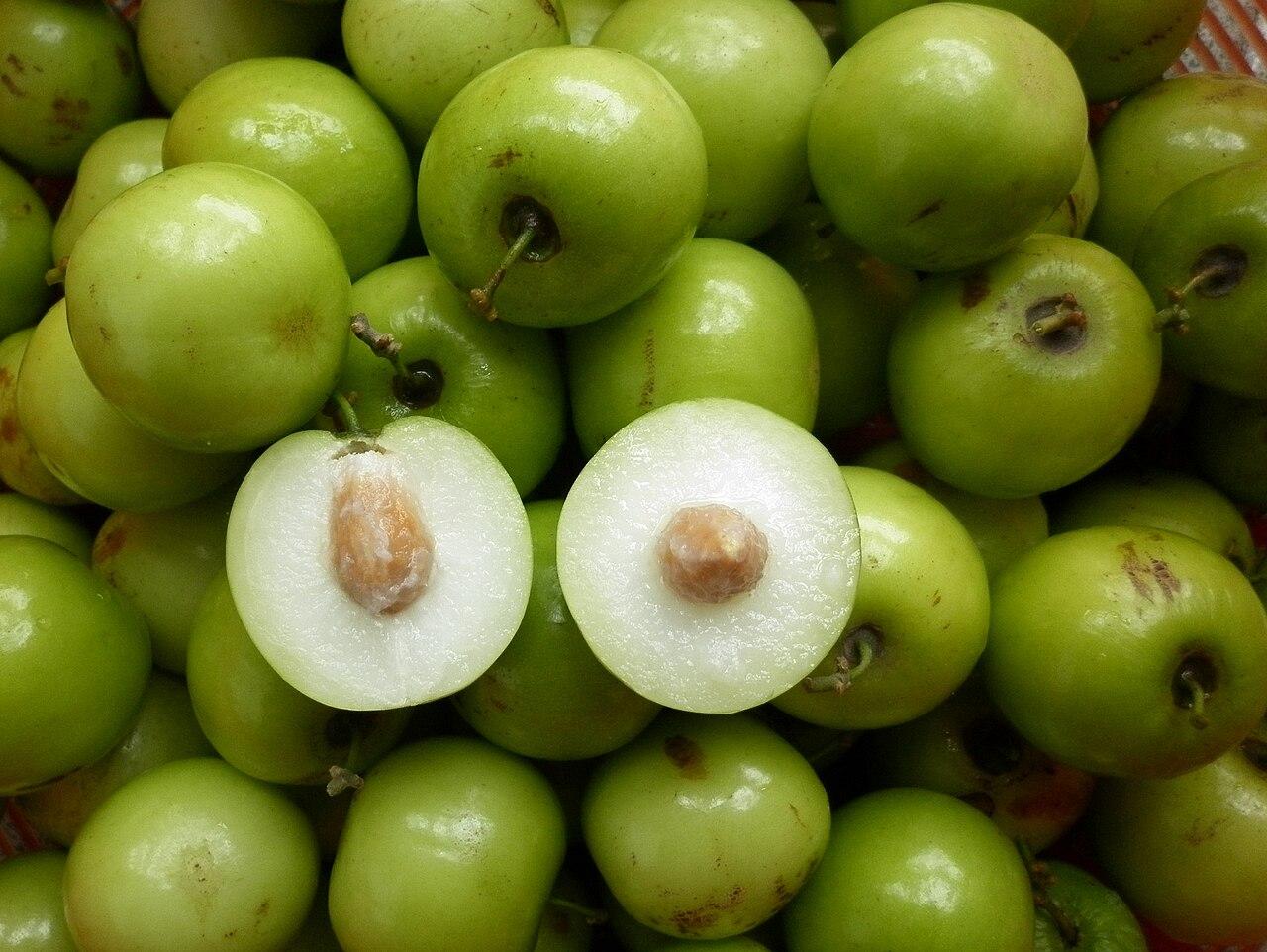Ziziphus mauritiana, commonly known as the Indian jujube or Ber apple, is a tropical fruit-bearing tree species belonging to the Rhamnaceae family. It is native to South Asia but is also widely cultivated in other tropical and subtropical regions of the world.
Characteristics
- Appearance: The tree is small to medium-sized, often growing to heights of 5–12 meters. It has thorny branches, making it resistant to browsing by animals.
- Leaves: The leaves are simple, oval, and shiny green with a slightly hairy underside.
- Flowers: The flowers are small, greenish-yellow, and borne in clusters.
- Fruit: The fruit is drupe-like, varying in size from small to medium, and has a sweet-tart taste when ripe. It starts green and turns yellowish, reddish, or even blackish as it matures. The flesh is juicy and rich in vitamin C.
Uses
-
Culinary:
- The fruit is consumed fresh or dried and is also used to make jellies, pickles, and candies.
- In some regions, the fruit is fermented to produce beverages.
-
Medicinal:
- The fruit and other parts of the plant are used in traditional medicine to treat various ailments, such as digestive disorders, skin infections, and respiratory problems.
- Rich in antioxidants and vitamins, the fruit is considered beneficial for boosting immunity.
-
Agricultural and Ecological:
- The tree is drought-resistant, making it ideal for arid and semi-arid regions.
- Its extensive root system helps in soil conservation.
- The wood is used for making tools, fuel, and charcoal.
-
Cultural and Ornamental:
- Ziziphus mauritiana is often planted in home gardens and orchards due to its economic and aesthetic value.
Cultivation
- Climate: Prefers warm, dry climates and can tolerate high temperatures and poor soils.
- Propagation: Usually propagated by seeds, cuttings, or grafting.
- Harvesting: Fruits are typically harvested during the dry season.

